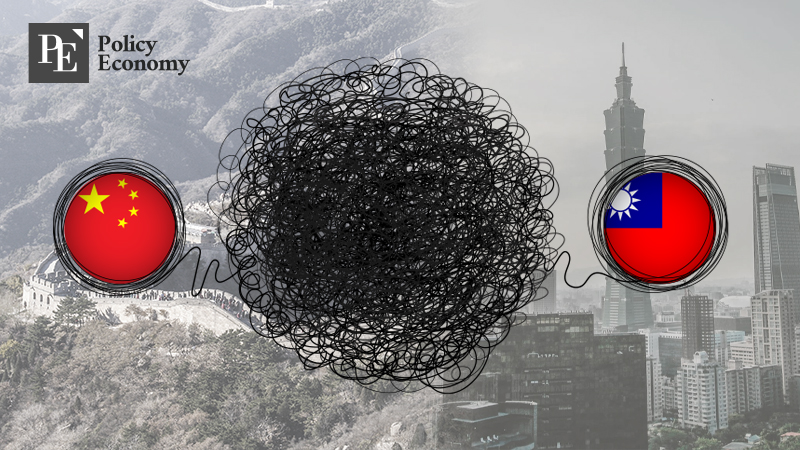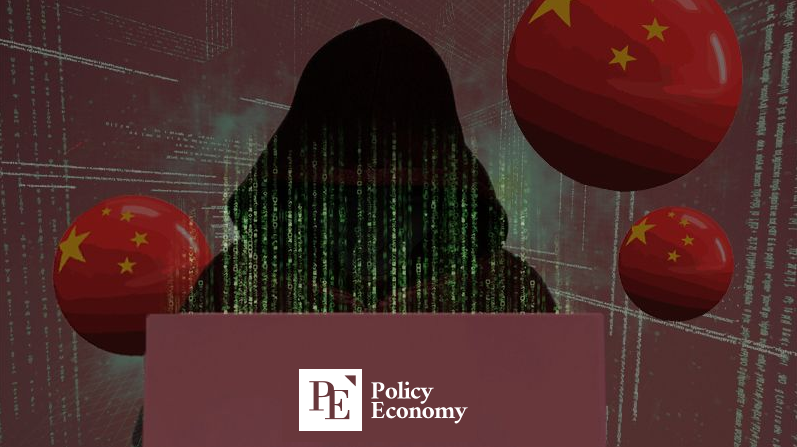Chinese espionage infiltrates Taiwanese politics, leaks numerous classified documents including details of secret meetings
Input
Modified
Taiwan Prosecutors Indict Four, Including Former Foreign Minister’s Secretary Leaked Information to China Used in Strategy to Sever Taiwan’s Diplomatic Ties and Isolate It Over 5,000 Suspected Chinese Spies Believed to Have Infiltrated Taiwan

Amid rising tensions between China and Taiwan, revelations that Chinese spies have deeply infiltrated Taiwan’s political sphere and operated over an extended period have sent shockwaves through Taiwanese society. Those exposed as spies were closely connected to current and former high-ranking officials within the ruling Democratic Progressive Party (DPP) and the government. Prosecutors have confirmed that during President Tsai Ing-wen’s administration, these individuals leaked details of diplomatic meetings between Taiwan’s foreign minister and officials from allied nations to China over several years. The classified documents funneled to Beijing are believed to have been used in China’s strategy to isolate Taiwan diplomatically.
Recruited by Chinese Intelligence in 2003, Operated for Over Two Decades
According to reports by Taiwanese media outlets including Liberty Times and United Daily News on the 11th, the Taipei District Prosecutors’ Office has indicted four individuals—Huang Chiu-lung, Wu Shang-yi, He Jen-chieh, and Chu Su-yuan—on charges of violating the National Security Act and the Classified National Security Information Protection Act. All four were arrested and formally charged. Prosecutors have identified Huang Chiu-lung, a former Democratic Progressive Party (DPP) official, as the central figure in the case and have sought a combined sentence of 30 years and 6 months for charges including leaking state secrets and money laundering.
According to the prosecution, Huang was first recruited in 2003 during a business trip to China by an intelligence officer affiliated with the Central Military Commission of the Chinese Communist Party. Over the course of approximately 22 years, Huang reportedly received funding from Chinese intelligence agencies and operated an espionage network within Taiwan.
Huang, who once served as a special assistant to former New Taipei City Councilor Lee Yu-tien of the DPP, used his political connections to gain access to classified information. In 2017, he arranged for his friend Chu Su-yuan—former vice president of the DPP-affiliated Democracy College—to meet with Chinese intelligence agents in places such as Thailand and Macau. Through Chu, Huang recruited Wu Shang-yi, who served as secretary to then-Vice President Lai Ching-te (Taiwan’s current President), and He Jen-chieh, who was secretary to then-Foreign Minister Joseph Wu (now Secretary-General of the National Security Council).
Prosecutors stated that Huang received approximately USD 200,000, and Chu received around USD 70,000 from Chinese intelligence agencies in exchange for their espionage activities.
Between December 2022 and January 2024, Huang is alleged to have acquired and transferred sensitive information through Wu and He, including transcripts of confidential conversations and meetings between Vice President Lai and officials from allied nations. One of the leaked documents included Lai’s full itinerary during his 2023 visit to Paraguay, which Chinese intelligence reportedly used to assess Taiwan’s strategy in Latin America. Other leaked materials included documents related to the Taiwan–U.S. “21st Century Trade Initiative” and Taiwan’s contingency plans for diplomatic severances with allied nations.
Dubbed the “Presidential Office Espionage Case,” the scandal has shaken Taiwan’s public since being uncovered through a joint investigation by the Prosecutors’ Office and the National Security Bureau in February. After just two months of investigation, the case broke open in April, revealing the depth of Chinese infiltration. Taiwanese media, such as China Times, have noted that the leaked intelligence played a tangible role in shaping China’s strategy to isolate Taiwan diplomatically. Since China ramped up its diplomatic offensive, Taiwan has seen the number of its formal diplomatic allies drop from 22 in 2016 to just 12. Notably, eight of these countries severed ties with Taiwan after 2019, coinciding with the period in which a large volume of diplomatic documents was leaked to China.

Formed a Treasonous Network and Attempted to Overthrow the Government
Beyond the recent Presidential Office espionage case, Taiwan has uncovered a string of other espionage operations believed to be backed by Chinese intelligence agencies. In January of this year, six individuals—including Kao An-kuo, a retired lieutenant general who previously served as deputy commander of Taiwan’s Army 6th Corps and later as chief mobilization officer in the Republic of China Military Government—were indicted for violating the National Security Act.
According to prosecutors, Kao was recruited by the Chinese government in 2018 and received around USD 420,000 in operational funds. A military official noted that this was “the first known case in which a treasonous organization attempted to execute a concrete plan to overthrow the state,” which included targeting government institutions and plotting the assassination of political and military leaders.
Taiwanese media reported that Taiwan’s Investigation Bureau under the Ministry of Justice and the Political Warfare Bureau of the Ministry of National Defense began tracking Kao’s activities following intelligence and reports filed in 2020 and 2022. Prosecutors stated that Kao and his group had planned to launch a coup in the event of a Chinese invasion, aiming to topple Taiwan’s government from within. The group also allegedly tried to recruit active-duty military personnel to obtain classified information about military bases and strategic deployments. Additionally, they used drones to surveil and tail mobile radar units of the Taiwanese military and reported their findings to China.
Since President Tsai Ing-wen, who favors Taiwanese sovereignty, took office in 2016, the number of military personnel arrested on espionage charges has increased. In 2023, a senior Taiwanese army officer was sentenced to 7 years and 6 months in prison after receiving money from China and pledging to defect in the event of war. In March 2024, a former air force major, Su Chun-cheng, and an active-duty air force captain, Hsu Chan-cheng, were arrested for leaking classified military information, including anti-ship missile data related to Taiwan’s fighter jets. Su had been recruited during a business trip to China, where he accepted bribes and funds, and then recruited a junior officer upon his return to Taiwan.
Tensions Rise Across the Strait, Counterintelligence Capabilities Must Be Strengthened
According to China Times and other Taiwanese outlets, it is estimated that more than 5,000 Chinese spies are currently operating in Taiwan. Former National Security Bureau (NSB) directors Sung Hsin-lien and Yin Tsung-wen, who led the bureau in the 1980s and 1990s, have publicly stated that around 5,000 Chinese agents had already infiltrated Taiwan. Lin Chung-bin, former Deputy Minister of Political Warfare during the Chen Shui-bian administration, echoed this estimate in 2023, adding that given current cross-strait dynamics, the number has likely increased.
In an interview with local media, Lin explained, “After witnessing how quickly internal documents from the Presidential Office and Mainland Affairs Council were being leaked, I became convinced that Chinese spies exist across all sectors of Taiwanese society.” His concerns are supported by data. According to an NSB report titled Analysis of Infiltration Methods in Chinese Spy Cases, the number of espionage-related indictments has grown significantly: 3 cases involving 16 individuals in 2021; 5 cases with 16 individuals in 2022; 14 cases with 48 individuals in 2023; and 15 cases with 64 individuals in 2024.
Liu Te-liang, former director of the Military Intelligence Bureau (MIB), underscored the seriousness of the threat. “If these agents were targeting government agencies, political parties, think tanks, and businesses, the level of risk is beyond imagination,” he warned. Liu also pointed out the difficulty in prosecuting such cases, noting that “it typically takes two to three years just to gather evidence because the operations are so well concealed.” Paradoxically, he argued, this level of concealment highlights the strength of Taiwan’s current counterintelligence efforts. Still, Liu urged greater investment, saying that Taiwan must go beyond mere information warfare and urgently expand its surveillance systems, security personnel, and defense budgets to bolster its anti-espionage capacity.





















